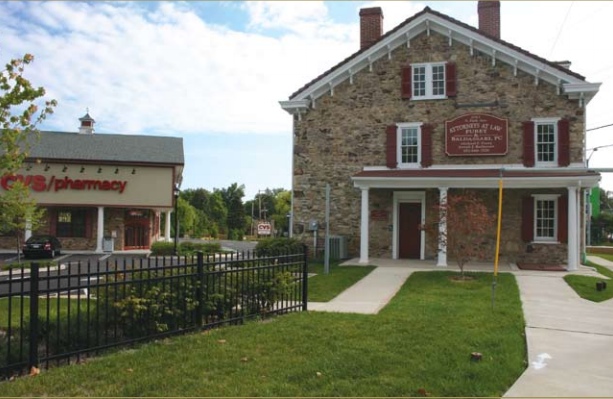Regretfully I wasn’t able to attend the South Whitehall Township (SWT) Board of Commissioners meeting last night. Sounds like the budding resident group advocating to save the historic landmark had a large enthusiastic turnout.
King George Inn Supporters Implore South Whitehall Commissioners – Mcall
Few thoughts:
First, the board is correct to state they cannot stop the demolition. As I’ve written I don’t believe in strict compulsory regulation as the best path to save historic buildings. Regulations should only be utilized in the most compelling cases. I believe in incentives.
What SWT should be doing is making preservation the path of least resistance. No, Commissioners can’t stop the wrecking ball but they can work with the developer. They should be playing quarterback in the effort bringing parties to the table. They can and should stand with residents who overwhelmingly want to see this building saved. They should also stand behind their comprehensive plan which calls for historic preservation. They have the moral responsibility to do so.
Again, here is an example. – Lower Providence adaptive reuse project resulted in preservation and incorporation of historic structure into a new development.

Working with elected officials, township staff, county planning
commission, and local interest groups, a site design and
village commercial zoning were created to save and reuse
the historic inn and allow the construction of a new
CVS drugstore. The property’s location at a congested
intersection posed many design challenges. Additionally the site had significant drainage issues. (Sound familiar?)
I know the gentleman who was a director of community development in Lower Providence when a similar activist group formed to save the Audubon Inn. (pictured above) Like SWT he was ready to sign the demolition permit. After hearing concerns he and other officials began working directly with the developer, county planners and interest groups.
No, SWT officials cannot stop the wrecking ball but they do have the moral responsibility to play the quarterback role leading the charge for preservation. Additionally the Zoning Hearing Board needs to do it’s job and put the burden of proof on the developer who must prove he has explored all possibilities to build this project without variances. Variances should be the exception not the norm. Developer must show a hardship. Based on what I’ve heard from previous meetings, the developer has made zero effort to explore incorporating the building into the development plan. This alone is reason to deny the requested variances.
